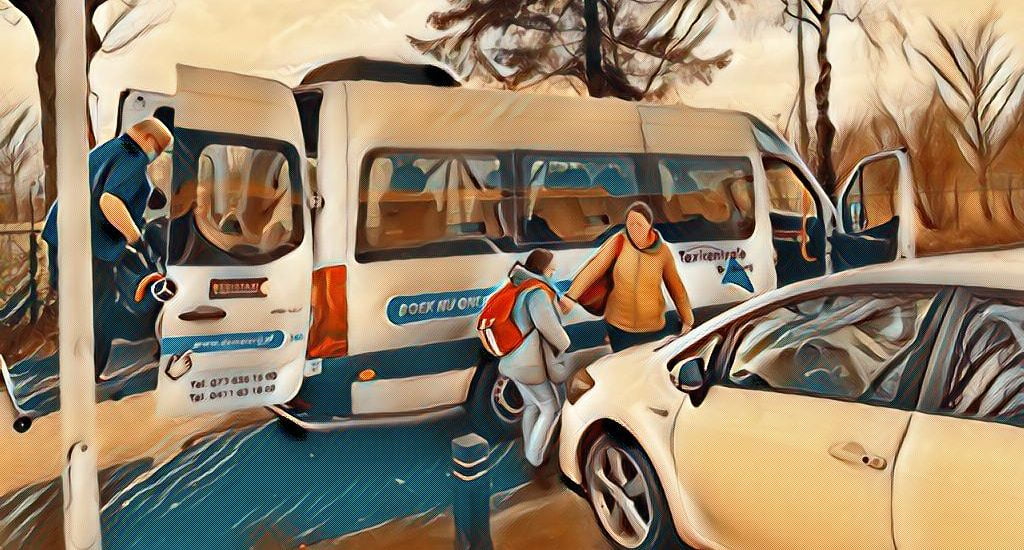The VNG will investigate improvements for the short and longer term with municipalities, sector organizations of transporters, OCW and the VDVN.
The Association of Netherlands Municipalities will deploy an expert team to solve the bottlenecks in student transport. The Minister of Education, Culture and Science Robbert Dijkgraaf has asked the VNG to set this up together with municipalities. In the debates last autumn, the minister himself promised to send municipalities a letter with practical solutions for the short term.
At the same time presented research agency Oberon a monitor on the facts, figures and policy choices of municipalities. These results will now be taken up by the expertise team to be formed. The team focuses on both the short and long term. Oberon has broad knowledge of practice, policy and science and unites these worlds in research and advice. We do this at various levels and for a variety of clients, such as municipalities, the national government, school boards and national organizations such as the sector councils and the National Board of Educational Research (NRO).
bottlenecks
After the determination of the long travel times, the minister indicates that an individual travel time of a maximum of 45 minutes should be the rule. Some of the municipalities are not aware of the actual travel times of students. The VNG will investigate improvements for the short and longer term with municipalities, sector organizations of transporters, OCW and the VDVN (Association of target group transport in the Netherlands). Representatives of these parties together form an expertise team. In the short term, the expert team is investigating how the travel time in student transport is registered by municipalities and how they keep a grip on this.
Another bottleneck is the handling of complaints. Some of the municipalities appear to be insufficiently aware of complaints from parents and more attention should be paid to the enforcement and evaluation of agreements with carriers agreed in the contracts.

It is important to keep in mind that efficient complaint handling means not only that complaints are dealt with quickly, but also that parents are satisfied with the resolution of their complaint.
Questions are also raised about what is needed to monitor travel time and, where possible, limit it. Not only is there attention for the handling of complaints, the way in which they are received and the question of whether parents know where to go with a complaint. There are several ways to set up an efficient complaint handling system for parents with complaints about student transport.
It is important to create a clear complaints procedure. This means that parents know how to make a complaint and what steps are taken to resolve the complaint. Complaints should be dealt with as soon as possible and parents should be kept informed of the progress of the resolution of their complaint. By analyzing complaints, it is possible to identify structural problems that need to be addressed. After handling a complaint, the necessary improvements must be implemented to ensure that a similar complaint does not recur.
The discussion between the municipality and parents about the application for student transport is also discussed, and the question of whether all options for student transport are discussed during the discussion in order to jointly arrive at a suitable solution.
tender
The big question remains how we can organize education close to the children and how the target group transport can be tendered inclusively, so that efficient use is made of the (limited) number of drivers? One possible solution is the use of technology such as GPS tracking and online booking systems, to organize and coordinate transport more efficiently. Agreements can also be made with transport companies to deploy specially trained drivers for target group transport.
Another approach could be the development of a regional transport network, combining different transport services to provide a more efficient service. It is important to consider the specific needs of the target group and work with parents, transport companies and other relevant parties to find a solution that works for everyone.
The aim of the expertise team is to answer these questions by collecting knowledge and exchanging good examples throughout the country. In this way, the bottlenecks can be tackled together and student transport can be structurally improved.
The purpose of the Student Transport Monitor is to gain insight into developments in municipal policy and the use and costs of student transport.
With the Student transport monitor the extent of student transport in the Netherlands has been mapped out. This measurement was carried out among Dutch municipalities in the autumn of 2022 and concerns the 2021/22 school year. Measurements have previously been carried out over the period from 2012 to 2016. The monitor thus also provides some insight into developments in recent years. In 2022, the monitor will be carried out by Oberon, commissioned by the Ministry of Education, Culture and Science.





